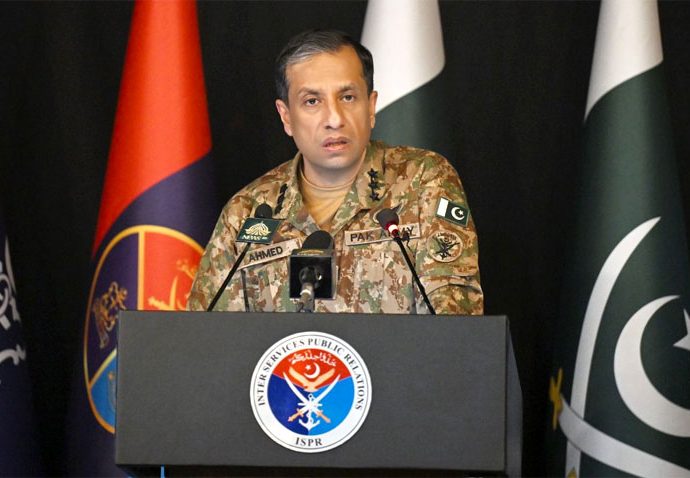According to DG ISPR Lieutenant General Ahmed Sharif Chaudhry, all 33 terrorists who assaulted the Jafar Express in Bolan were killed by security forces, which included the Pakistan Army, Air Force, Frontier Corps (FC), and SSG commandos.
The brutal siege, which began with terrorists bombing the railway track and storming the train, claimed the lives of 21 passengers and four FC officers. There were about 400 passengers on board at the time of the attack.
Security forces started a massive effort to rescue hostages held by insurgents. So far, 190 people have been successfully evacuated, while several terrorists attempted to retreat into the mountains with an unknown number of prisoners.
The rescue effort was carried out in phases to ensure the safety of women and children who were allegedly put near suicide bombers by terrorists.
“Due to the presence of women and children with suicide bombers, extreme caution is being exercised,” warned the Directorate General of ISPR.
According to security officials, the terrorists were in communication with their handlers in Afghanistan, complicating the operation.
Eyewitnesses detailed the assailants’ ruthlessness, claiming they looked through passengers’ ID cards, primarily targeting Punjabis and security officers. One witness described how two troops were shot in front of him, while others were abducted and brought to an unknown destination.
The Baloch Liberation Army (BLA), a separatist terrorist organization, took responsibility for the attack. They had previously carried out similar assaults and reportedly sought the swap of imprisoned members with security troops.
In reaction to the disaster, Pakistan Railways established an assistance station at Rawalpindi Railway Station to offer information to the victims’ relatives. Additional emergency contacts have been established at the Quetta Railway Station Inquiry Office to help passengers.
Train operations from Quetta have been temporarily halted due to security concerns, and will resume after officials have cleared the situation.
This bloodiest strike in recent years is a watershed moment in Pakistan’s counterterrorism operations, with DG ISPR highlighting that “the rules of the game have changed.”
Hours earlier, security forces started a “full-scale” operation on Wednesday to rescue train passengers kidnapped by militants in Bolan, Balochistan.
More than 450 people were on board when terrorists took the train at the entrance to a tunnel in a remote border province, and an unknown number of captives, predominantly Punjabis, are still being held.
“Information suggests that some militants have fled, taking an unknown number of hostages into the local mountainous areas,” a security officer in the region told AFP.
Militants blasted a portion of the railway track and boarded the train on Tuesday afternoon.
According to security sources, “terrorists have positioned suicide bombers right next to innocent hostage passengers”.
Three individuals were murdered, including the train conductor, during the siege in the hilly Sibi area.
A security official told AFP that “a full-scale operation” will be launched to release the remaining detainees. “Security forces have safely rescued 190 passengers… 30 terrorists have been eliminated,” a security source stated. According to an earlier tally, there were at least “31 women and 15 children”.
It was not immediately apparent how many individuals remained on board.
Security authorities have also said that the jihadists were communicating with their facilitators in Afghanistan.
Muhammad Kashif, a top railway administration official in Quetta, informed AFP on Tuesday afternoon that the 450 people on board had been kidnapped.
Passengers rescued on Tuesday recalled trudging for hours across rugged terrain to reach safety.
“I can’t find the words to convey how we managed to flee. It was terrible,” Muhammad Bilal, who had been traveling with his mother on the Jafar Express train, told AFP.
According to paramedic Nazim Farooq and railway official Muhammad Aslam, the attackers murdered the train’s driver, a police officer, and a soldier.
One passenger described shooters sifting through identity cards to see who was from outside the region, similar to prior BLA assaults.
“They came and checked IDs and service cards, shot two soldiers in front of me, and took the other four to… I don’t know where,” claimed one passenger who declined to be recognized after trekking four hours to the next rail station.
“Those who were Punjabis were taken away by the terrorists,” he informed us.


